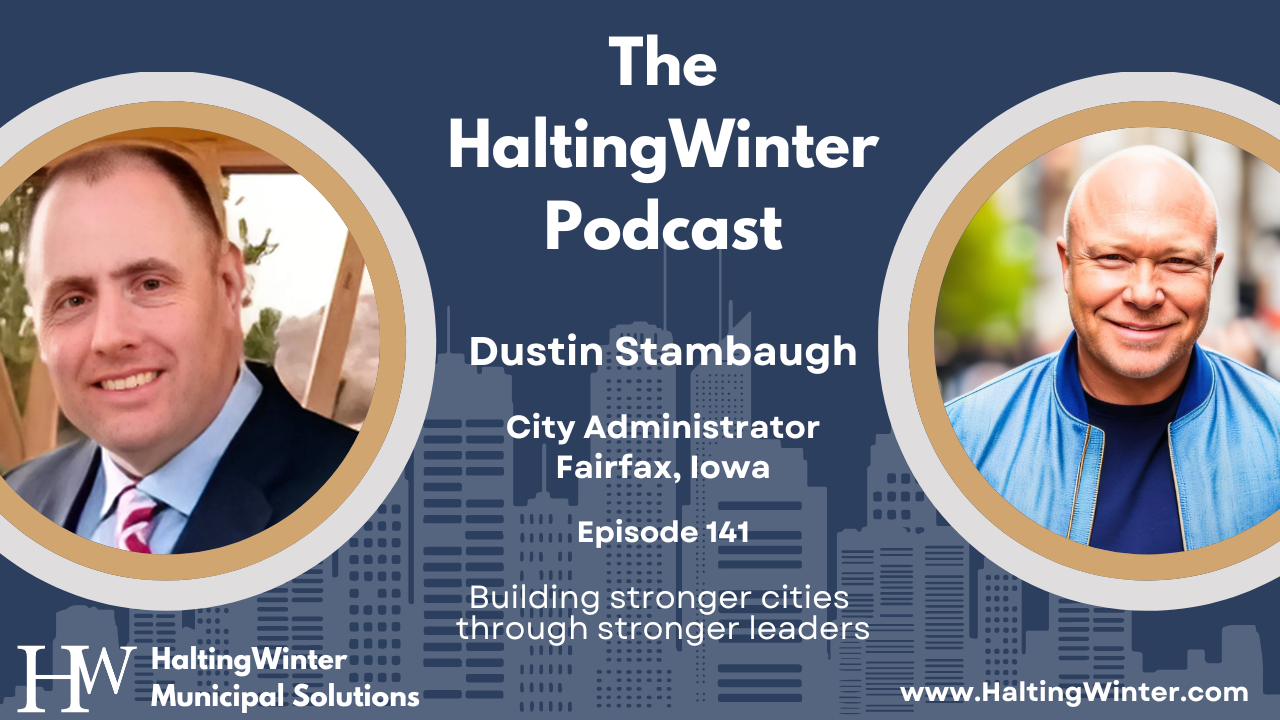Municipal Leaders: Develop Faster, Lead Stronger, Build Better

Every week, you’ll get insights and actionable steps to help you navigate personal growth and professional success.

It’s Monday morning at City Hall. Your inbox is overflowing with department reports, your calendar is packed with meetings, and three council members have already called about various constituent concerns. Yet something feels off. Despite all the activity, there’s a subtle but persistent sense of disconnection between your team’s daily tasks and the larger mission of serving your community.
This scenario plays out in city halls across the country, where dedicated public servants work tirelessly but sometimes lose sight of the deeper purpose that drives their service. The challenge isn’t just about managing tasks or meeting deadlines – it’s about cultivating a culture where every team member understands and feels connected to the “Why” behind their work.

Every morning in city halls across America, dedicated public servants arrive ready to serve their communities. They manage projects, oversee budgets, and navigate complex political landscapes. Yet something is often missing – that deeper connection between daily tasks and lasting community impact.

In the latest episode of The HaltingWinter Podcast, Steve Pauken, City Manager of Bisbee, Arizona, shares a transformative insight that changed his entire approach to city management: “The motive should always be to find a way to yes.”
This wasn’t just a catchy phrase, but a hard-earned lesson from a pivotal moment in his career. Early on, a mayor gave him feedback that would reshape his leadership philosophy: “Steve, you just say no too often.” That criticism led to deep reflection and eventually, a complete transformation in how he approached municipal leadership.

The most effective municipal teams didn’t start that way. They became exceptional by acknowledging an uncomfortable truth: surface-level harmony often masks deeper dysfunction.
In today’s episode of The HaltingWinter Podcast, we explore what I call the “municipal mask” – that professional facade we feel compelled to maintain in public service. Drawing from Patrick Lencioni’s “Five Dysfunctions of a Team,” we examine how this mask impacts everything from council meetings to departmental collaboration.

Picture yourself in your weekly department head meeting. Your Public Works Director barely makes eye contact with your Community Development Director as they discuss an upcoming infrastructure project. Your Finance Director holds back crucial budget concerns to avoid conflict. Your HR Director has stopped bringing up staffing issues because previous attempts at discussion were shut down. These aren’t just minor annoyances – they’re symptoms of deeper team dynamics that could be undermining your city’s effectiveness.


In this week’s leadership interview on The HaltingWinter Podcast, we explore the delicate balance of establishing authority while building trust as a city’s first administrator. Dustin Stambaugh, City Administrator of Fairfax, Iowa, shares his journey from military leadership to municipal management, offering valuable insights on the power of authentic vulnerability in public service.

Every city manager knows the moment: It’s Monday morning. Your inbox holds a pointed email from your city council, your most experienced department head just announced retirement, and community groups are demanding immediate action on emerging challenges.
In these pressure-cooker moments, something more fundamental than experience or expertise determines your effectiveness: your mindset.

As a city manager, your day likely resembles a high-stakes juggling act. A council member needs your input on a contentious issue. Department heads await your decisions on budget allocations. Residents flood your inbox with concerns about the new development project. Meanwhile, that strategic plan you’ve been trying to finalize sits untouched on your desk.
Sound familiar?

In our latest episode of The HaltingWinter Podcast, we explore how personal legacy shapes professional purpose through the remarkable journey of Phil Kiraly, Village Manager of Glencoe, Illinois. From his parents’ dramatic escape from Hungary as refugees in 1956 to his innovative leadership in modern municipal government, Phil’s story exemplifies how deep purpose drives meaningful public service.

Special This Week: Experience the MLDC Free for 7 Days
Get complete access to our leadership development platform, daily insights, and join our virtual book club this Friday as we explore Carol Dweck’s “Mindset.” Start your free trial today. –> Click Here
Imagine sitting in your office late one evening, replaying a difficult interaction from earlier that day. A department head challenged your approach to a new city initiative – not aggressively, but with clear disagreement. You responded by asserting your authority, shutting down the discussion. Now, hours later, you’re wondering: Was that really leadership, or was it your fixed mindset taking control?